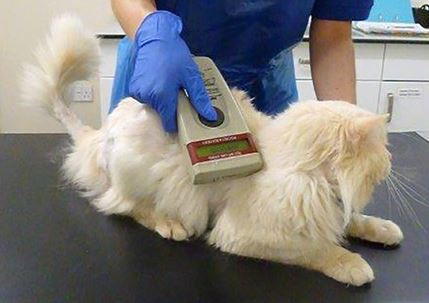Pet Protection is a journey that starts with microchip implantation. It is a simple way to maximise the chances of a successful reunification should the worst happen and companions become lost or stolen. The process does not end when the pet has been microchipped.
The legal requirements for dog microchipping
Since 2016 it has been a legal requirement for dogs, not only to be microchipped, but for keepers to store and make sure that their contact details are up to date on a DEFRA compliant database (one that is of the governments standard). This is a statutory duty and part of the responsibilities of every dog keeper.
The PDSA Paw Report 2022 stated that 14% of all dog owners (equating to 1.4 million dogs) recorded that they did not think it was the law that dogs had to be microchipped1. Awareness and education is therefore required at every opportunity, especially with first time keepers.
Battersea Dog and Cats home completed a comprehensive review called Compulsory Dog Chipping (5 years on) and reported that 23% of stray dogs did not even have a microchip implanted. 63% of stray dogs implanted with a chip had an inaccurate record. Sadly new keepers failing to update or create a record when they acquire the dog accounted for 62% of all non-compliant stray dogs2. They go on to state that this has become a long-term trend, and is likely to apply to all dogs, not just stray dogs. With awareness of the consequences (both legally and emotionally) we can drive an improvement in these figures and provide guidance on responsible dog keepership.
The legal requirements for cat microchipping
Under new Government plans soon to come into force, all cat keepers must ensure their pet is microchipped before they reach the age of 20 weeks. Keepers found not to have microchipped their cat will have 21 days to have one implanted, or may face a fine of up to £500. Along with dogs, cat keepers contact details must be stored and kept up to date on a DEFRA compliant microchipping database.
The PDSA reported there are approximately 11.1 million cats in the UK and 24% of UK adults own a cat. According to the Cats Protection’s ‘Cats and Their Stats’ report 2.8 million cats are not microchipped3. Of those cat owners who had not yet had their cats implanted, 27% reported that it was because they were unlikely to stray, while 19% thought it was not necessary1.

Keeping your details up to date
4% of dog owners, 6% of cat owners and 12% of rabbit owners said they were not sure if their contact details were up to date. Of those that had not updated their details, 30% said this was because they did not know how to get their details updated, while 17% said they had lost the paperwork about their pet’s microchip and 14% said it was because they did not know their pet’s microchip number1.
We lead busy lives and often the intention of updating contact details gets delayed. Identiday is on Monday 20th March, the first day of spring, and Pet Protection experts identi are encouraging their clients to take time out of their day to “spring clean” their account. There are incentives to act on this one day: the changes made to accounts will be free of charge, and there will be competitions to enter and promotions regarding pet protection subscriptions. Making the effort to check contact details on 20th March is a valuable use of time.
As we know with animals, anything can happen. Doors can be left open allowing escape; dogs can slip collars and they can become spooked, fireworks can take pets by surprise often resulting in a flight response. It is imperative for those who have microchipped their pets ensure that their contact details are kept up to date. Knowing that the details are not up to date will add to the level of stress a lost pet brings. We need to make it habitual to update contact details as and when it is required, it is much better to be safe than sorry.
Visit www.identibase.co.uk to learn more.
1 – https://www.pdsa.org.uk/
2 – https://www.gov.uk/
3 – https://www.cats.org.uk/









